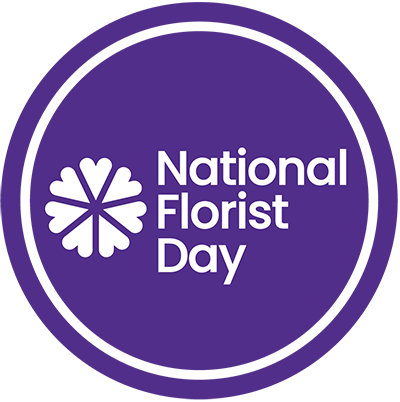
Scams and other things to be wary of
If there is something that makes our blood boil it is seeing hard working florists taken advantage of, actually any hard working small independent being taken advantage of. Yet scams, chargebacks and other dodgy dealing are not only on the increase generally but at peaks like Mother’s Day even more likely to occur. Here's a quick heads up on things we would be wary of.
Credit & Debit Card Chargebacks
This happens when a payment taken over the phone as a 'card not present' or on the website is subsequently challenged by the cardholder. It can be an aggrieved customer, the card may have been stolen or used without the cardholder’s permission or it's just someone trying it on. Whichever it is you are liable.
Because even if you have an authorisation number that actually counts for nothing as a letter we saw from a leading bank explains. We won’t share the letter but basically there is an inherent risk in undertaking any ‘Card not Present’ transactions. An authorisation code is not a guarantee of payment or proof that the genuine cardholder has placed the order but purely a way of saying there is enough money to meet the charge and that the card has not been reported as lost or stolen.
The added problem is that the Card Scheme rules and regulations mean that the bank or finance company are not able to defend the claim unless you have signed or chip and pin sales receipt. In short telephone and web orders are always going to be risky and you could lose money.
So, what can you do? We spoke with members of Good Florist Guide, many of whom have experienced this dreadful situation, and this was their advice.
1: Set a Floor limit
Credit and debit cards are both liable for chargebacks so set a floor limit you are comfortable with and once it’s exceeded ask for payment by bank transfer (PBT). The suggested amount is £100/£150 which usually sorts out the dodgy players as often, once they are told it has exceeded the shops floor limit, suddenly they don’t have online banking! That is a pretty good red flag as legit buyers usually won’t mind. Yes, there is a small risk you may cheese someone off, but truth is you can’t afford to lose money. If we're talking about In store purchases you may want to reduce the contactless amount to £50 just in case.
2: Read the signs
If the customer calls and wants every add-on going (like soft toys, chocolates, balloons, champagne) be wary and let alarm bells ring. We know it is hard, but you really need to develop a 6th sense on this one and remember the mantra ‘if it sounds too good to be true it might be’. And train all your staff to be equally wary … not to the point of being rude but cautious. It’s hard … especially at Mother’s Day when the love is big … but you need to fine tune the antennae!
3: Check the website
Always check website orders before they go into the workroom. Yes it means you may have to go back to the customer but you must be careful. If you want, you can put a note on your site saying that due to the increase in online fraud you have a credit card limit of XX. It doesn’t have to be large bold capitals but should be in your T’s & C’s
4: Be wary on all orders
Don’t think it is just gift bouquets. We have heard horrendous stories of £400 funeral orders being disputed, even when the florist has delivered to the undertakers and the bereaved have posted pictures and a florist who created a romantic flower and balloon filled room in a hotel for Valentine’s who has just been told the £500 cost has been charged back … even though she has a video to prove the work has been done and the people stayed in the room!!
2: Third Party orders
A number of readers have contacted us to say they have not been paid for orders placed by online order gatherers.
Whilst we know florists want – heck need – every order they can get, we are concerned to hear that some of the outstanding debt goes back a few months and for some florists has run into several hundreds of pounds.
We have written to the companies involved and they have given us varying reasons for the delay in payment, and we have contacted the British Florist Association as we think this is too important not to be shared and they are taking their own steps.
However, having investigated and talked to florists our advice would be;
1: Do not accept any order from any company if they already owe you money.
2: If you want to take orders please make sure you get paid by Bank Transfer rather than credit card – especially given our warning over chargebacks.
3: Be sure you know how much the customer has paid for the order (check what is showing on these third-party websites) and make sure you have enough to make it look good. Remember it is YOUR name going on every delivery and we have heard some horror stories where the customer has paid £70, the florist gets £40 and the customer is understandably not best pleased when it doesn’t look as big as the picture … which of course it can’t if there’s a £30 difference!
In our opinion no order is worth it if it either doesn’t cover the cost, opens you up for a complaint or may not be paid for.
3: HMRC (and similar) threat of Bailiffs
This one comes directly from Caroline Crabb who runs a busy shop in Bodmin and wanted to let every florist know what to be wary of. Caroline explains.
"This is a warning to any florist – especially those who are limited companies as Companies House lets a lot of your information be found.
Fortunately I was lucky as I am quite savvy but I’ll be honest it has really unnerved me and it was very distressing, as you go into automatic panic mode.
You see I took a call in the shop from a man who claimed to be a high court sheriff (bailiff) and who said I owed £848.00 to HMRC.
He sounded very genuine, he knew a lot of information like the company directors – their names, addresses etc. He gave me a reference number, id badge number and a contact number for his office.
Anyway, he told me they had a locksmith at my home address awaiting to enter property to seize goods if I didn’t pay the amount outstanding.
In my mind I knew I didn’t owe any money, but at this point I was very scared as I was not at home and couldn’t check to see if there was anyone there.
I asked for more information, but he kept saying that if the amount wasn’t paid, they would continue to enter my property. (Ed’s note – whilst bailiffs cannot normally forcibly enter premises the situation changes if criminal files or tax are involved, then they do have the power)
So, I agreed I would pay they amount, he told me to open my banking app, and he would give the details, assuring me he wouldn’t ask for any of my banking details or pin numbers.
I took the details from him but luckily, I kept my wits about me because when I entered the details it came up as a personal account not a business account. I asked him more questions and why and he told me that it was a personal account as the court service was not a business. I didn’t believe this and didn’t send the money.
At that point he became very aggressive and told me he was on the way to my property to meet the locksmiths, he even told me landmarks he was passing and kept saying if I paid money they would leave.
He called on a withheld number but would not give me his phone number when I asked, he wouldn’t let me verify his detail and the more I challenged and questioned the more aggressive he became.
In the end I put the phone down and reported it to the police who are dealing with it but not only was it a very sophisticated scam but scary as well … I’m just please I didn’t part with any money."
Our advice:
1: Always be wary of any business type call from a withheld number … what are they hiding.
2: No government agency will send in bailiffs without sending you a lot of chasing letters first
3: If you do owe HMRC money – be it VAT/PAYE etc talk to them. They are – in our experience – very helpful and payment terms can be arranged … never stick your head in the sand as that won’t make the problem go away.






